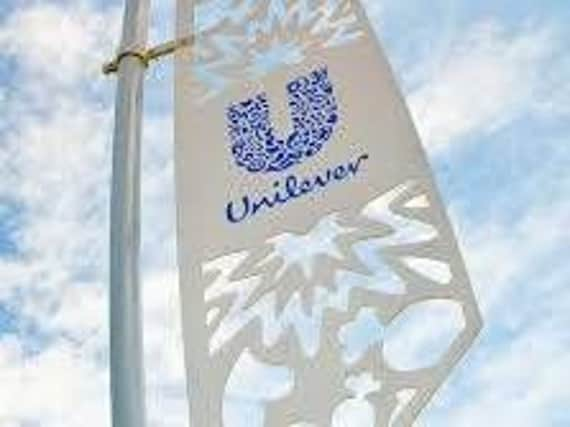Unilever sales decline after disposal


The group reported a 1.6 per cent fall in overall turnover to £10.74bn, but sales rose 3 per cent on an underlying basis.
The decline in headline turnover was due to the disposal of the spreads business, which completed in July last year. The unit was sold to KKR for £5.9bn.
Advertisement
Hide AdAdvertisement
Hide AdGrowth in Unilever's continuing operations remained solid, particularly in emerging markets, where underlying sales rose 5 per cent.
These markets were led by South East Asia and Brazil, while India also saw growth although this was slightly slower than in the fourth quarter.
The company said growth remained weak in developed markets, while high inflation weighed on global market volume growth.
In Europe, underlying sales rose just 0.7 per cent. Strong ice cream sales boosted the UK and Italy, but Unilever said retail conditions were extremely challenging in Germany.
Advertisement
Hide AdAdvertisement
Hide AdChief executive Alan Jope, who succeeded longstanding CEO Paul Polman at the start of this year, said: "We have delivered a solid start that keeps us on track for our full year expectations. Growth was led by emerging markets and was balanced between volume and price.
"Accelerating growth is our number one priority. It requires both great execution and a continued strategic shift into faster growth segments and channels.
"We saw good performance in key growth channels, including out of home and e-commerce, and benefited from stronger global innovations and faster and more relevant local innovation."
Tom Stevenson, investment director at Fidelity Personal Investing’s share dealing service, said: “Even the best buy and hold stocks like Unilever pause for breath from time to time.
Advertisement
Hide AdAdvertisement
Hide Ad"Expectations were low for the first quarter of 2019 and the Marmite to Magnum group has lived down to them. The post-Polman era is getting off to a predictably slow start."
Mr Stevenson said underlying sales growth of 3 per cent was in line with guidance at the time of full year figures in January, pointing to the lower end of the company’s 3 to 5 per cent target range.
“The predictability of Unilever’s performance is the whole point about this stock. You hold Unilever in your portfolio because it provides reliable exposure to the world’s steadily growing affluence, particularly in emerging markets," he added.
"The dividend is in line with the market while the potential for its slightly sub-par profit margin to catch up with peers is the kicker.”
Advertisement
Hide AdAdvertisement
Hide AdIn December, Unilever signed a deal to acquire Horlicks and a clutch of other health drink brands in India from drugs maker GlaxoSmithKline for £2.9bn.
The deal turned its Indian arm ito one of the largest food and refreshment groups in the country.
In the UK the company has said it is stockpiling goods ahead of Brexit in case there is disruption to the supply chain.